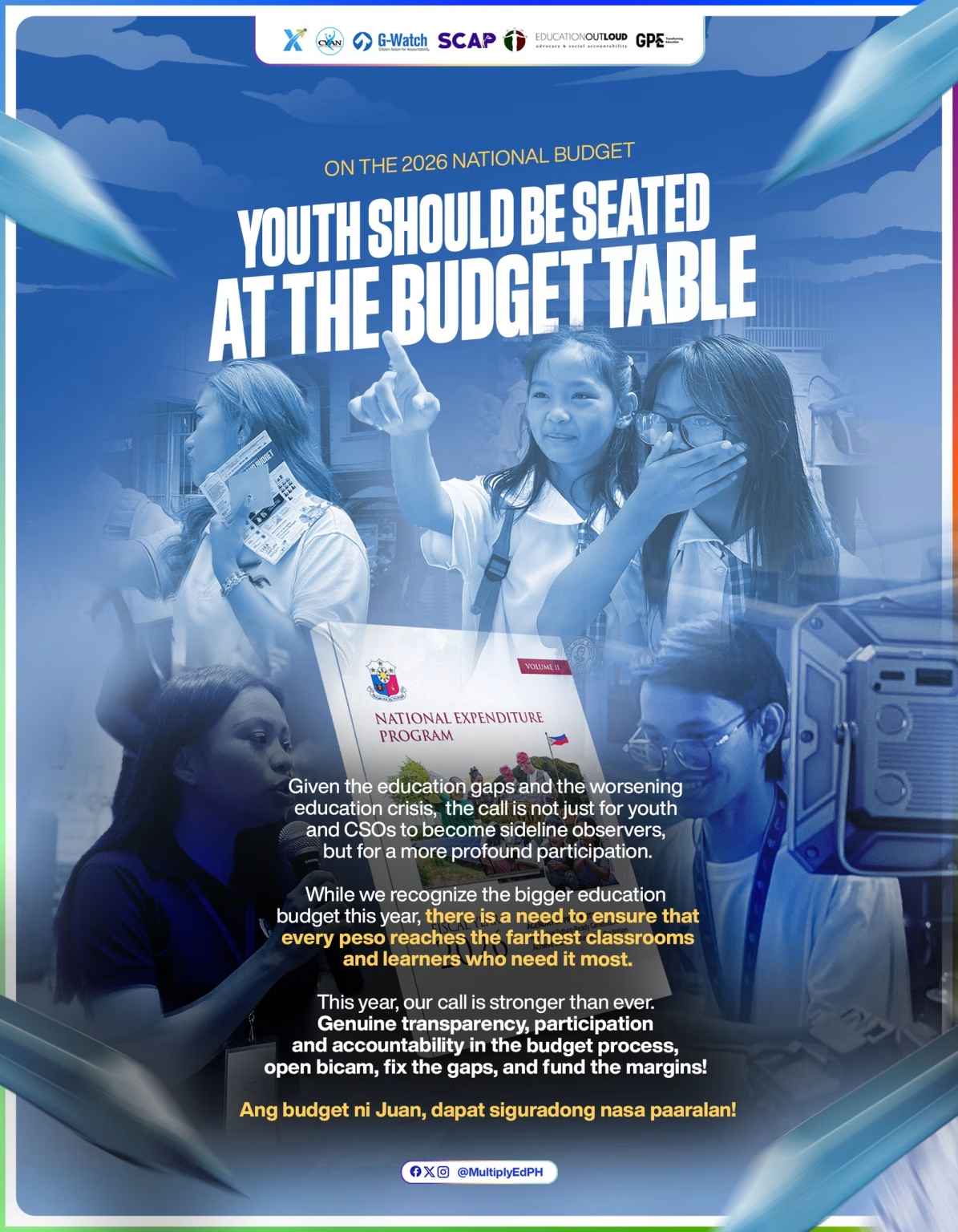Multiply-Ed Philippines calls for genuine youth and CSO participation in the government’s budget process, stressing that they should be active decision-makers, not mere observers.
Through its Amplify Education Budget (Amplify-Ed) Campaign, the group joined three budget-related activities in Congress: the CSO turnover of the budget, orientation on CSO guidelines, and the DBCC briefing on financing sources. However, Multiply-Ed emphasized that “participatory budgeting” should not end at being informed. CSOs and youth must be included in discussions, not treated as decorations.
From its grassroots monitoring of 90 public senior high schools, Multiply-Ed estimated that addressing basic education input gaps nationwide could cost ₱1.702 trillion, close to the 6% education budget allocation recommended globally. These gaps cover shortages in classrooms, textbooks, teachers, laptops, and learner support programs, with at least ₱1.6 billion needed immediately for urgent needs in covered schools.
Multiply-Ed’s 2026 Inclusive Education Budget Agenda also pushes for funding of marginalized learner programs like Indigenous Peoples’ Education (IPEd), Madrasah Education, Special Education (SPED), and Gender and Development (GAD) initiatives. The call is clear: fix the gaps and fund the margins.
For three years, Multiply-Ed has pushed for Transparency, Participation, and Accountability (TPA) in education budgeting. With the worsening crisis, they stress that every peso must reach the farthest classrooms. Their appeal: genuine TPA in the budget process, open bicam sessions, and stronger accountability mechanisms.

